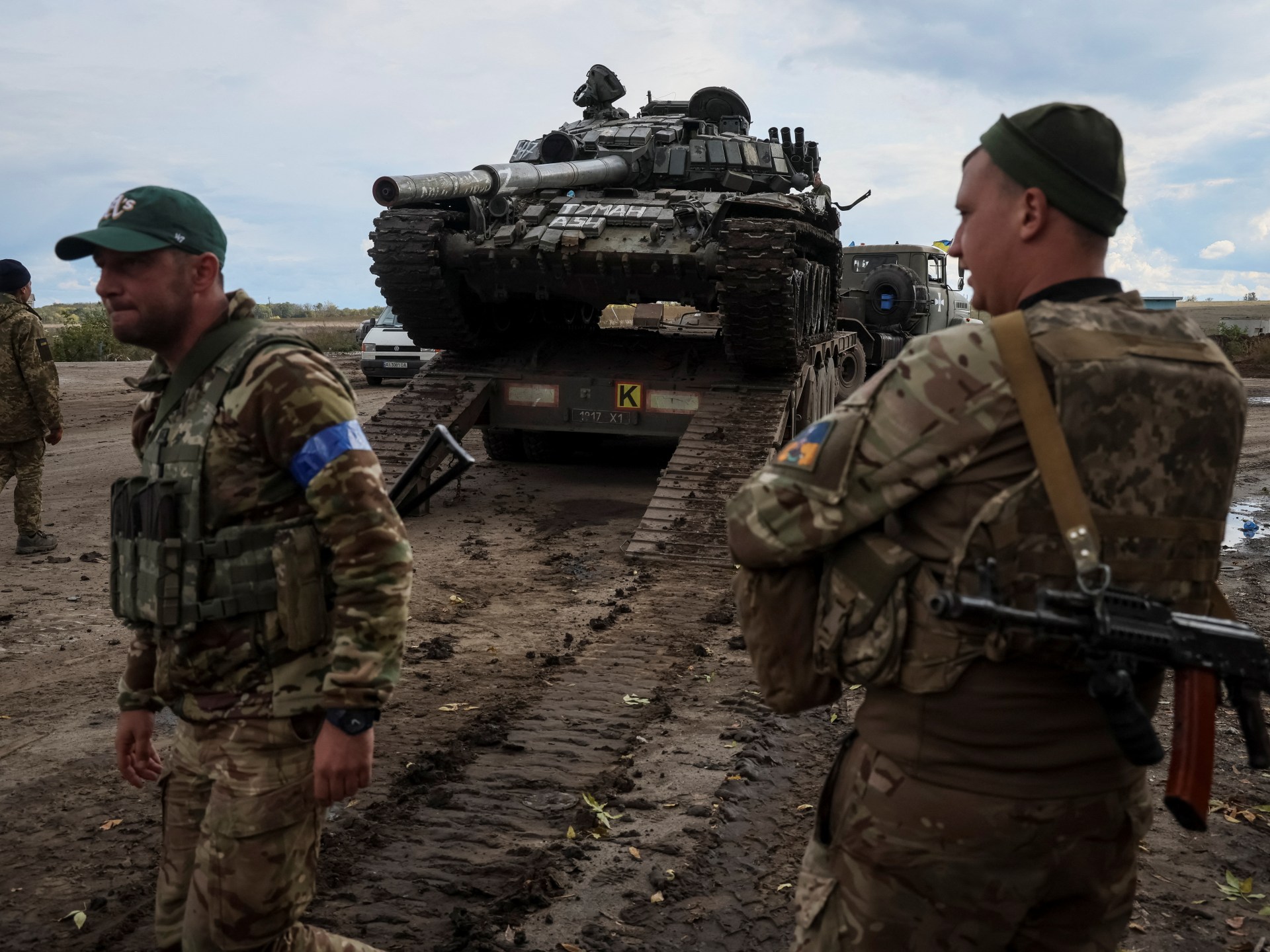Moscow revealed the next step that will follow the annexation referendums in eastern Ukraine, while Ukrainian President Volodymyr Zelensky sent a inflammatory message to Russian citizens.
The Kremlin stressed that if a positive decision is taken in the referendums in Lugansk, Donetsk in the Donbas region (eastern Ukraine), Kherson (south) and Zaporizhia (southeast), actions by the parliament and the Russian president will follow.
"Certainly, a decision in this regard will be required later on the part of the parliament and the head of state. The necessary documents must be signed, some required actions must be carried out," RIA Novosti news agency quoted Russian presidential spokesman Dmitry Peskov as saying, adding that these actions will take place quickly.
It is noteworthy that the referendum on joining Russia began on Friday in Donetsk and Lugansk, as well as in the Kherson and Zaporozhye regions.
Voting will continue for 5 days, until September 27.
And earlier, the “TASS” news agency, quoting a Russian source, said that Russia may complete the annexation procedures by September 30, and that the State Duma may study on the 29th of this month draft laws to annex the four Ukrainian regions that Russia controls in whole or in part. .
Poll continues
While the referendum operations continue in the Ukrainian regions under Russian forces, Russian Foreign Minister Sergey Lavrov said at a press conference in New York that these referendums are conducted according to the rules of local governments, and that Moscow will absolutely respect their results.
While Moscow said that the referendums were in accordance with international law, Ukraine and its allies denounced the move, stressing that they would not recognize its results, and Washington and the European Union threatened to impose more sanctions on Russia.
On Saturday, the Ukrainian mission to the United Nations called for a meeting of the Security Council to discuss referendums organized by the pro-Russian authorities.
The annexation of the four regions to Russia would represent a major escalation in the conflict, as Moscow would consider any military move targeting these regions after its secession from Ukraine an attack on its territory.
The Deputy Chairman of the National Security Council, Dmitry Medvedev, indicated a few days ago clearly that Moscow may resort to nuclear weapons to defend what it considers its territory.
Zelensky's message
Meanwhile, Ukrainian President Volodymyr Zelensky sent a message on Saturday evening to Russian citizens, telling them that their President Vladimir Putin knowingly sends "his compatriots to death."
"The Russian government is fully aware that it is sending its citizens to death," Zelensky said in Russian, adding to the Russian soldiers, "You will be treated civilly, no one will know the circumstances of your surrender."
This statement came hours after Putin signed on Saturday amendments that stipulate a prison sentence of up to 10 years for military personnel who desert or refuse to fight during the mobilization period.
"It is better to reject the rhetoric of conscription than to die as a war criminal in a foreign land," Zelensky said, adding, "Escape from criminal mobilization is better than being paralyzed and then convicted in a court than participating in an aggressive war."
"It is better to surrender to the Ukrainian army than to be killed by the strikes of our weapons, fair strikes from Ukraine, which is defending itself in this war," he said, addressing the Russian citizens.
It is better not to take a conscription letter than to die as a war criminal.
It is better to run away than to be crippled and then bear responsibility in the court.
It is better to surrender to 🇺🇦captivity than to be killed by the strikes of our weapons@ZelenskyyUa pic.twitter.com/g8t5kXy3EB
— Anton Gerashchenko (@Gerashchenko_en) September 24, 2022
general exemption
In a related context, the Russian Defense Ministry announced yesterday, Saturday, the dismissal of General Dmitry Polyakov, the Russian Deputy Defense Minister for Logistics Affairs, and his transfer to another job.
The ministry said - in a statement - that Major General Mikhail Mizintsev was appointed to succeed Polyakov.
This change comes after the retreat of Russian forces in the Kharkiv province (northeast) and also in Donetsk.
The New York Times had quoted US officials as saying that Russian President Vladimir Putin had become more involved in the war strategy, and had refused the demands of his field commanders to withdraw from the city of Kherson, which was controlled by Russian forces at the beginning of the war that broke out on February 24. Last February, which frustrated the morale of the Russian forces, according to the newspaper.
US officials said that Putin's intervention created tension, despite his acceptance of the recommendations of military leaders such as the mobilization of civilians, noting that the Russian president eased his control over military planning after the concerns of Russian officers were proven correct, and allowed senior generals to draw up a new strategy that focused on intense artillery bombardment.

